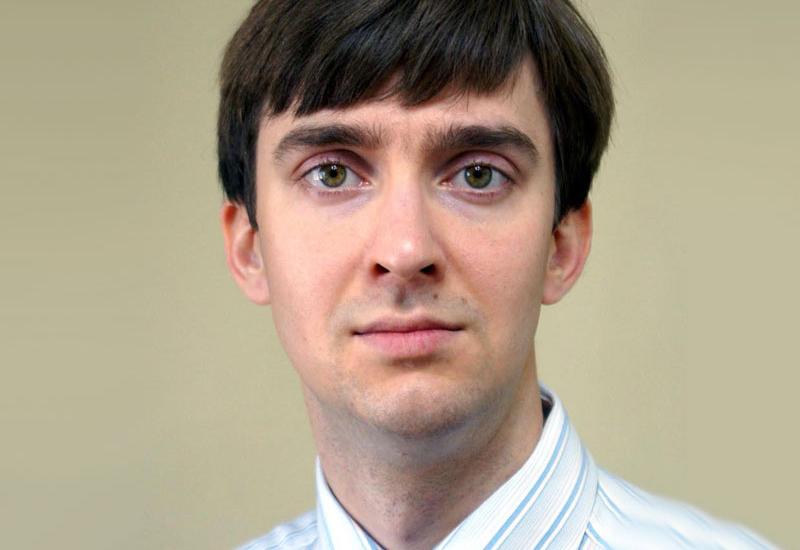Artificial intelligence is a branch of computer science that develops systems for performing tasks that usually require human intelligence: medical diagnostics, e-commerce, remote control of robots, and remote sensing of the Earth. In particular, scientists from the Department of Computer Science at FIOT have undertaken to simplify the work of doctors in detecting certain diseases using remote automated diagnostics.
Today, artificial intelligence (AI) has invaded all spheres of our lives, from bank answering machines to architecture, and has radically increased the speed of data transmission and processing. The Minister of Digital Transformation, Mykhailo Fedorov, once said that artificial intelligence is about opportunities. According to him, it is necessary to master its use now in order to be competitive in the world.
Of course, Igor Sikorsky Kyiv Polytechnic Institute scientists have never stood aside from educational and scientific innovations. This spring, Vice-Rector for Academic Affairs Anatoliy Melnychenko emphasized: "Universities should be ready to use AI with all its advantages in their activities and, at the same time, to neutralize certain undesirable consequences of its careless use. Undoubtedly, artificial intelligence will make everyday tasks easier and can free up human labor for more creative efforts, help participants in the educational and scientific process collect and analyze large amounts of data, which will improve the quality of education or research." For example, research using advanced intelligent technologies and algorithms was carried out at the Department of OT under the leadership of its head, Professor Serhii Stirenko, in the framework of the research work of the National Research Institute "Science for Human and Society Security" - the project "Artificial Intelligence Platform for Remote Automated Detection and Diagnosis of Human Diseases".
This project aims to bring the benefits of artificial intelligence to the medical field. Having studied the problem in the field of intelligent medical diagnostics with regard to medical image processing software, the department's researchers concluded that such systems need to optimize and improve the accuracy of image processing, improve software architectures and options for their selection depending on the resources of medical institutions. "Radiography is often considered an outdated method of medical imaging, but the technology we propose allows us to revive its high importance in diagnosing diseases. First of all, for mass screening, unlike existing solutions, we propose a cloud-based AI platform that enables early automatic detection of suspicious and threatening signs on radiographs of more than 14 types of pulmonary abnormalities, even in a regular hospital and in the field without qualified personnel. This is likely to reduce the number of cases of misdiagnosis," the department said. That is, doctors can send X-rays to such a platform, and a specialized deep neural network model will process them and provide a list of detected diseases. The doctor will take the results into account when making a diagnosis.
It is worth noting that young researchers participated in this work alongside experienced scientists. In particular, they used the developments proposed by assistant Vladyslav Taran in his dissertation "Method of Adapting Deep Neural Networks to Hardware with Specialized Architecture" for the degree of Doctor of Philosophy, which the young scientist successfully defended in February this year. "The project manager, Professor Sergiy Stirenko, set me the task of developing a portable part of the specified AI platform using peripheral tensor accelerators. Such accelerators, such as the Coral Edge TPU USB Accelerator, connect to a computer's USB port and increase the speed of deep neural networks, which allows a doctor to process X-rays on any personal computer," the young researcher said.
In general, Vladyslav Taran has a wide range of research interests. Among them are artificial intelligence systems, deep learning methods for computer vision tasks, specialized computing architectures for deep neural networks, organization of distributed computing for processing large amounts of data, building cloud systems, etc. Among other things, the results obtained during the project (hardware and software parts of the AI platform) have been implemented in the educational process of the Faculty of Informatics and Computer Science for theoretical and practical classes of undergraduate and graduate students. Vladyslav Ihorovych also uses them when teaching the disciplines "Introduction to Artificial Intelligence", "Big Data Technologies", "Artificial Intelligence Technologies", "Cloud Computing", etc.
The path to science for young researcher Vladyslav Taran is not very different from the stories of dozens of similarly enthusiastic, motivated scientists. In 2012, yesterday's schoolboy - a motivated young man with a solid background and dreams of making his mark in the IT industry - came to study at the FIOT, the Department of OT. It is here that the community working on solving modern complex scientific and technical problems comes together. The scientist is reluctant to talk about himself: "While studying for my master's degree, I became interested in high-performance and distributed computing. In 2018, I graduated with honors and decided to enter the postgraduate program of Igor Sikorsky Kyiv Polytechnic Institute to continue my studies in computer science. My research area is related to artificial intelligence and deep neural networks. I conducted my research under the supervision of Professor of the Department of Computer Science, Doctor of Science, Professor Yuriy Gordienko. The joint work, dozens of experiments and studies brought results that later formed the basis of many articles indexed in Scopus. Thanks to my mentor, his experience and advice, I was formed as a teacher and a scientist. In 2019, I started working as an assistant at the Department of Computer Engineering, and in 2023, after defending my dissertation in Computer Engineering, I became a senior lecturer."
It is worth adding that Vladyslav Taran won the university competition "Young Lecturer-Researcher 2022". He has many new and unknown things ahead of him, ups and downs, but the first line in his creative biography will always be Igor Sikorsky Kyiv Polytechnic Institute, which gave him wings and direction - the best technical university in Ukraine.

